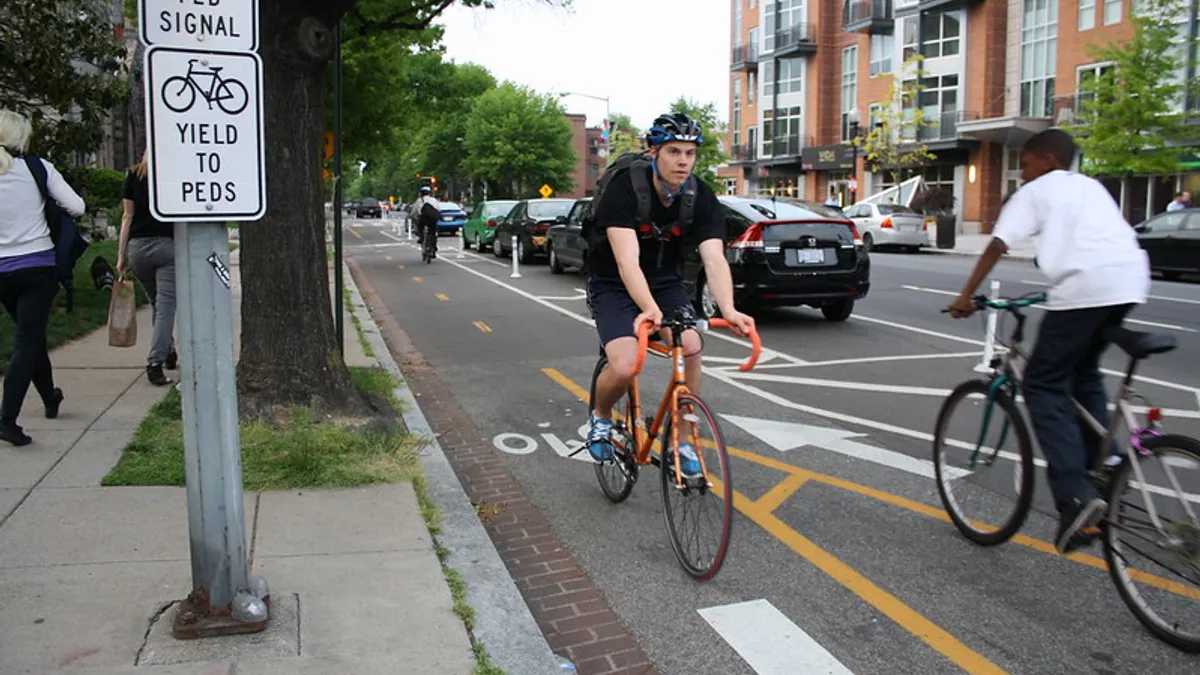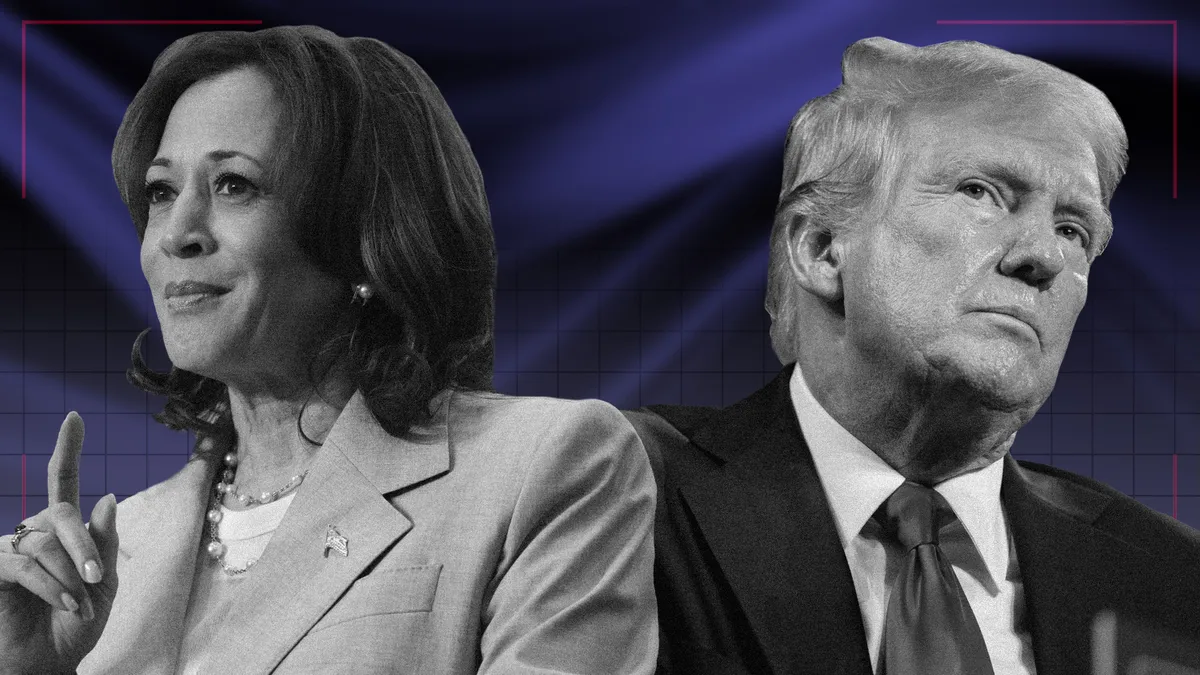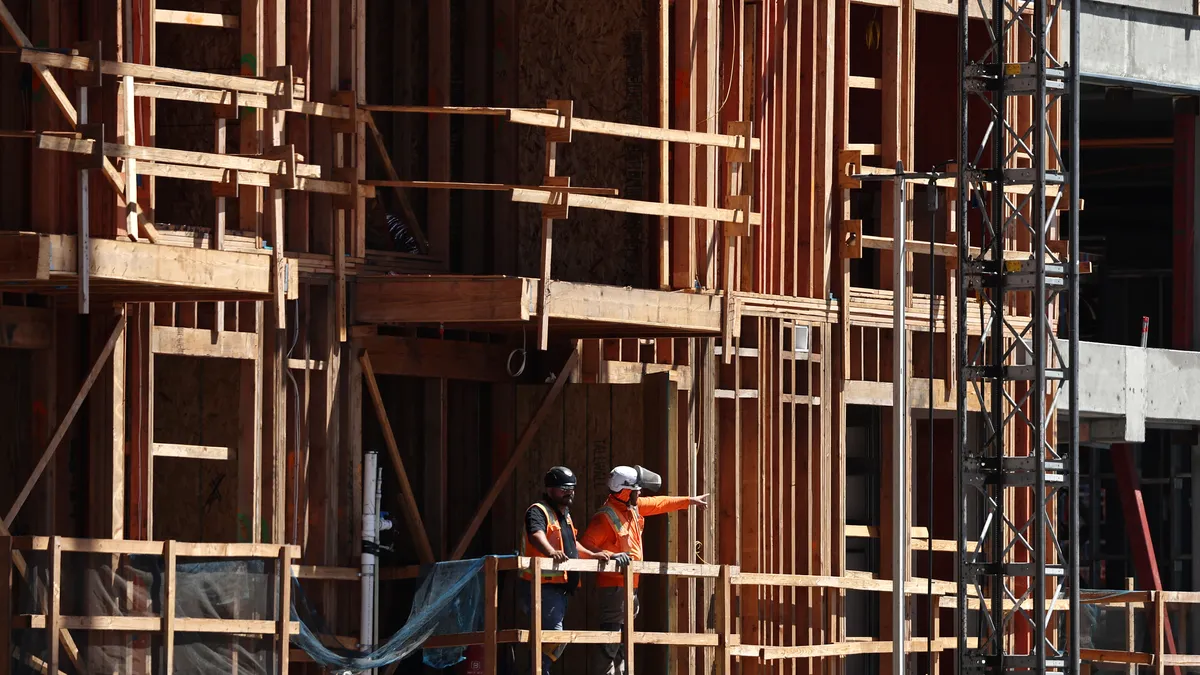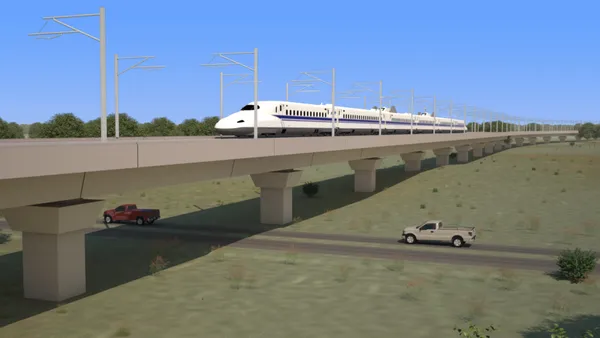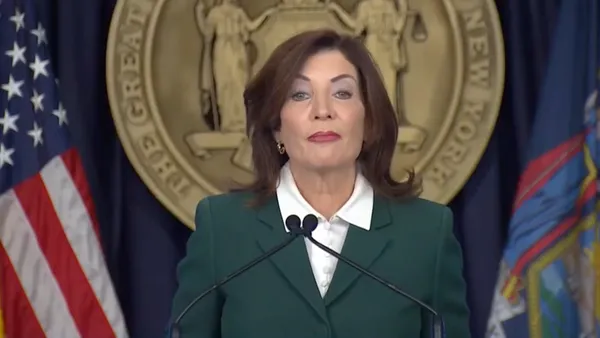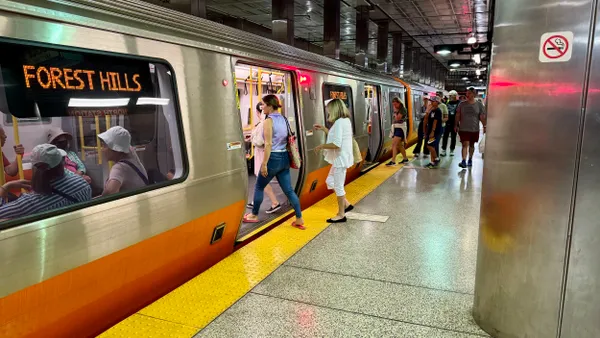Dive Brief:
- Washington, DC is stepping up street parking enforcement to improve safety in bike lanes.
- Starting this week, the city is adding 26 new parking enforcement officers (PEOs) who will be assigned the to areas that need safety improvements and behavior changes, based on surveillance and 311 complaints. The Department of Public Works (DPW) currently has 272 PEOs who cover 109 locations throughout the city, and each location now will have at least one officer solely dedicated to bike lane enforcement, with special attention to vehicles blocking bike lanes.
- PEOs will now be able to take photos of vehicles blocking bike lanes and mail tickets if the violator leaves the scene before the officer can issue a citation. Previously, PEOs were required to give bike lane violation tickets in person, but the change occurred due to provisions in DC's Fiscal Year 2020 Budget Support Act.
Dive Insight:
Bike lane enforcement used to be tougher to execute in DC due to the rule that tickets had to be issued in person. Drivers frequently took off when they saw PEOs approaching, and officers had no recourse. Allowing photo evidence and mailed citations under the newly changed language in the budget amendments could be a game changer to ensure vehicles stay out of bike lanes.
Vehicle obstacles are more than just an inconvenience; they're a serious safety issue because cyclists are forced to go around offending vehicles into traffic, increasing the chances of a collision and injury.
This is not the first time DC has tried to crack down on bike lane violators. Last year, the city trialed a one-day "Traffic Safety Blitz" conducted by a newly created group of PEOs called the Bike Force, as part of Vision Zero Week.
While some support DC's move to add PEOs and ticket offenders as a way to increase bicyclists' safety, not everybody considers it a full win.
"It's complicated," said Colin Browne, communications director for the Washington Area Bicyclist Association (WABA). "Given the existing infrastructure, this is probably a good move to address a chronic problem. But it's also sort of frustrating because ultimately bicyclists don't want vehicles to get tickets for parking in bike lanes, they don't want them in the bike lane."
WABA advocates for better infrastructure, such as protected bike lanes, that would keep vehicles from entering the lanes in the first place. WABA also contends that citations create a problem for low-income citizens.
"It is not a particularly equitable way to solve the problem. A $150 ticket to some people is not a problem, and to others it's a matter of whether they make rent or not — it has a disproportionate impact... The better solution is to build better bike lanes," Browne said.
Cyclists also say they don't have a reliable real-time way to report violations, which would help enforcement. The city has suggested reporting via 311, though the response usually is not immediate. The How's My Driving app launched in DC this year for citizens to report all types of bad driving behavior, but it is not affiliated with the city or used as an official way to report violations to the government.



